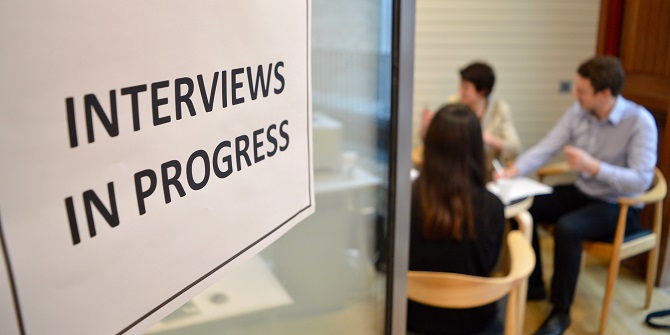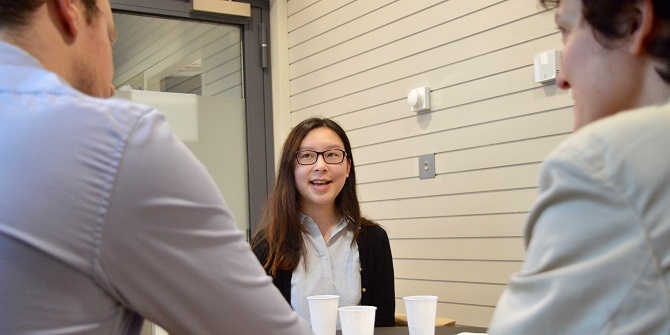Congratulations! You’ve been invited to attend an interview or assessment centre where one of the assessment tasks is a group exercise. You’re one step closer to getting that job!
A group exercise is an enjoyable part of the recruitment process, giving you the chance to demonstrate how you perform as part of a team. You’ll be put into a group with other candidates, be set a task, either related to a business scenario, a decision you have to make as a team or a practical team building exercise, and be asked to complete the task in a set time period. But how can you prepare beforehand to help you perform to your best during the group exercise?
Do your research to find out what the employer is looking for
During the group exercise, employers will assess your performance against set criteria. As part of your preparation conduct some research to understand the skills and knowledge the employer might be looking for from you on the day.
The skills they require
The first place to begin your research is by looking at the job description and person specification, which will outline the skills and knowledge required by the ideal candidate. They might ask for soft skills such as communication, negotiation and team work skills or knowledge related to a particular role. Make a list of the skills mentioned.
In addition, use your knowledge of the employer, their company values and any general skills they assess against to add to your list of skills (for example, PwC assess against the five core attributes from the PwC professional leadership framework – there might be a similar framework for your employer). Perhaps you spoke to the employer at events or through your own proactive networking. Think back to what you learned from them in terms of the skills required or of the working environment. Again, add this information to your list of skills.
What do I do with my list?
Taking each skill in turn, make an educated decision about those which can be assessed against in a group work situation, for example, your presentation skills are likely to be assessed whereas your ability to use advanced Excel techniques is unlikely to be. The remaining skills on your list will be assessed at another point during the recruitment process.
Make sure you are familiar with these skills, so you are aware what the employer expects from you and have them in mind during the group exercise.
Think about the organisation’s current issues
It’s likely that the group exercise will refer to the organisation’s activity, business, products, stakeholders or ecosystem. Ensure you research about current issues, which will enable you to bring some relevant ideas into the debate.
Check online forums
Some students who have been through group exercises will post their experiences with specific companies on websites such as glassdoor, wikijobs and student room. See if other students have written about the group exercise at the company you’re being interviewed for, to find out what they faced. Don’t rely on these reviews solely, though, as they are subjective and employers may change the task before your group exercise.
Consider your ‘normal’ group work contribution
In an assessed group exercise you need to show that you can contribute to the team and the ideas, give your opinion in a structured, coherent and confident manner, whilst allowing others to give theirs too. You don’t have to be a leader to be successful in a group exercise but every member needs to demonstrate leadership qualities such as encouraging others, asking follow up questions to others’ suggestions and showing you are interested in everyone’s contribution through positive body language and eye contact.
When preparing for a group exercise, consider how you normally perform in group work situations (such as those you face during your course or any extra-curricular, voluntary or work experience situations). Be critical of your past performances, and learn from your mistakes to ensure you don’t fall into bad group work etiquette on the day. Be self-aware. Ask yourself some questions, such as:
- If you normally find yourself in a leadership position, are you a good leader or do you just monopolise the discussion resulting in quieter members being dismissed?
- Do you enjoy being a note-taker, but find that you don’t get to contribute to the discussion?
- Are you often very shy and quiet, so never get a chance to be heard?
- Do you keep the time, but have little more else to contribute?
- Are you an ideas person, but can’t take other members of the team disagreeing with your suggestions?
- Are you talented at coordinating the final presentation, but don’t like to take part in it?
- Or are you concerned with keeping the group on task, but find it hard to articulate this in a positive way?
Attend LSE Careers group exercise events and seminars
Here at LSE Careers we regularly run events for students wanting to practise their group exercise skills. For example, search CareerHub for our next mock assessment centres and group exercise seminars. Employers also come onto campus to run skills sessions for group exercises. Use these as a chance to assess your own performance and how you could improve your team work skills.
Book a careers appointment/use our resources
If you’d like to discuss any aspect of the interview process to help you prepare, book an appointment via CareerHub. You can also get more advice on preparing for group exercises from us online.
Good luck!






1 Comments